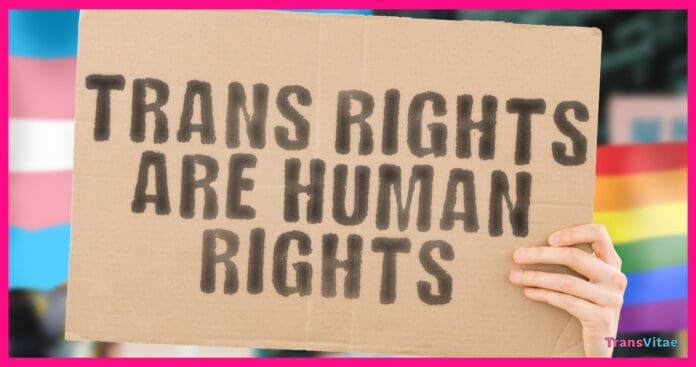In a landmark decision on Tuesday, a federal judge declared portions of Florida’s controversial ban on puberty blockers and hormone therapy for transgender children, as well as new restrictions on gender-affirming healthcare for adults, unconstitutional. U.S. District Judge Robert Hinkle’s ruling represents a significant triumph for the transgender community and advocates for equal rights.
Republican Florida Governor Ron DeSantis signed the restrictive law in 2023, prohibiting individuals under 18 from receiving puberty blockers or hormone therapy to treat gender dysphoria. The law allowed exceptions for those who had already begun treatment before May 17, 2023, but imposed new constraints. Additionally, it placed stringent restrictions on adults seeking gender-affirming care.
The law is a component of a larger trend of restrictive legislation that Republicans have advanced that targets transgender people’s rights and healthcare. The ban included severe penalties for healthcare providers who violated it, with potential prison sentences of up to five years.
Judge Hinkle’s Ruling
Judge Hinkle, based in Tallahassee, ruled that these elements violated the U.S. Constitution’s guarantee of equal protection under the law. He emphasized that discriminatory animus rather than justifiable medical concerns were the driving forces behind the law. “Gender identity is real,” Hinkle wrote in his order, adding, “In time, discrimination against transgender individuals will diminish, just as racism and misogyny have diminished.”
The judge’s decision dismantled the law’s central provisions, allowing transgender children and adults to access medically necessary treatments. Hinkle criticized Florida legislators for their moral disapproval of transgender people, noting that their actions were not based on sound medical judgment but rather on prejudice.
Reaction from Governor DeSantis and Supporters
Following the ruling, Governor DeSantis’ spokesperson, Julia Friedland, announced the state’s intention to appeal. Friedland referred to gender-affirming healthcare as a component of “radical, new age ‘gender ideology,’” claiming that these procedures cause “permanent, life-altering damage to children.”
Despite these assertions, Judge Hinkle highlighted that multiple medical associations and the U.S. Department of Health widely accept puberty blockers and hormone therapy as standard care for treating gender dysphoria. He noted that the law unconstitutionally discriminated based on sex by allowing non-transgender individuals to receive similar treatments without restrictions.
Impact on Transgender Individuals and Families
Several parents of transgender children and a transgender man who testified about the advantages of gender-affirming care brought the lawsuit against the state. One parent expressed relief at the ruling, stating, “This ruling means I won’t have to watch my daughter needlessly suffer because I can’t get her the care she needs.”
The plaintiffs described the distress, anxiety, and depression caused by the law’s restrictions. One transgender man testified that his interrupted testosterone treatment due to prescription lapses caused significant emotional harm.
Judge Hinkle’s decision also struck down restrictions for adults included in the law, such as the requirement that only doctors, rather than other medical professionals, could prescribe gender-affirming treatments and the imposition of unnecessary annual x-rays.
This ruling is a significant win for human rights organizations that have argued the ban violated equal protection rights. Thomas Redburn, a lawyer representing the plaintiffs, stated, “Today’s ruling affirms the principle that individuals should be able to make informed decisions about their own personal medical treatments without discrimination by the State.”
The decision is part of a growing body of legal challenges against anti-transgender legislation across the United States. While some courts have upheld similar bans, others have struck them down, leading to a patchwork of legal standards and ongoing legal battles.
Judge Hinkle’s ruling emphasized that no reputable medical association supports the kind of bans enacted by Florida and that the treatments in question are recognized as safe and effective. He criticized the state’s reliance on mischaracterizations and misinformation about gender-affirming care, noting that surgeries on minors are extremely rare and not relevant to the law in question.
The Bottom Line
The decision marks a critical moment for transgender rights in Florida and sets a precedent for other states with similar bans. By restoring access to gender-affirming care, Judge Hinkle’s ruling supports the medical consensus that these treatments are essential for the well-being of transgender individuals.
The state’s planned appeal suggests that the legal battle is far from over. However, the ruling provides hope and affirmation to transgender people and their families that their rights and identities are valid and protected under the Constitution.
Transgender advocates and allies will continue to monitor the appeal process and advocate for the protection of transgender rights at both the state and federal levels. As the legal landscape evolves, this decision stands as a testament to the ongoing fight for equality and dignity for all individuals, regardless of gender identity.
For the transgender community, this ruling is not just a legal victory but a powerful affirmation of their right to live authentically and receive the medical care they need without fear of discrimination.


